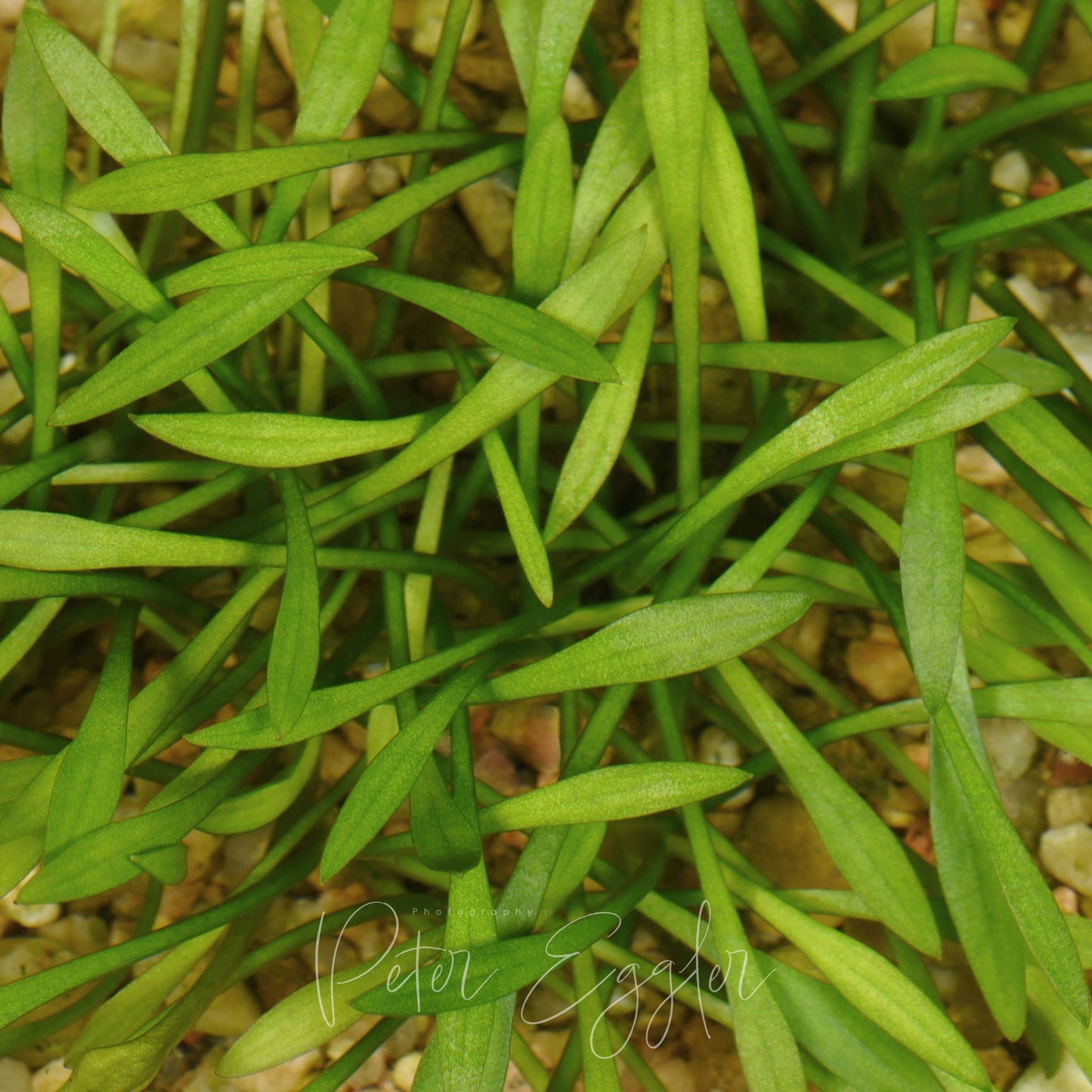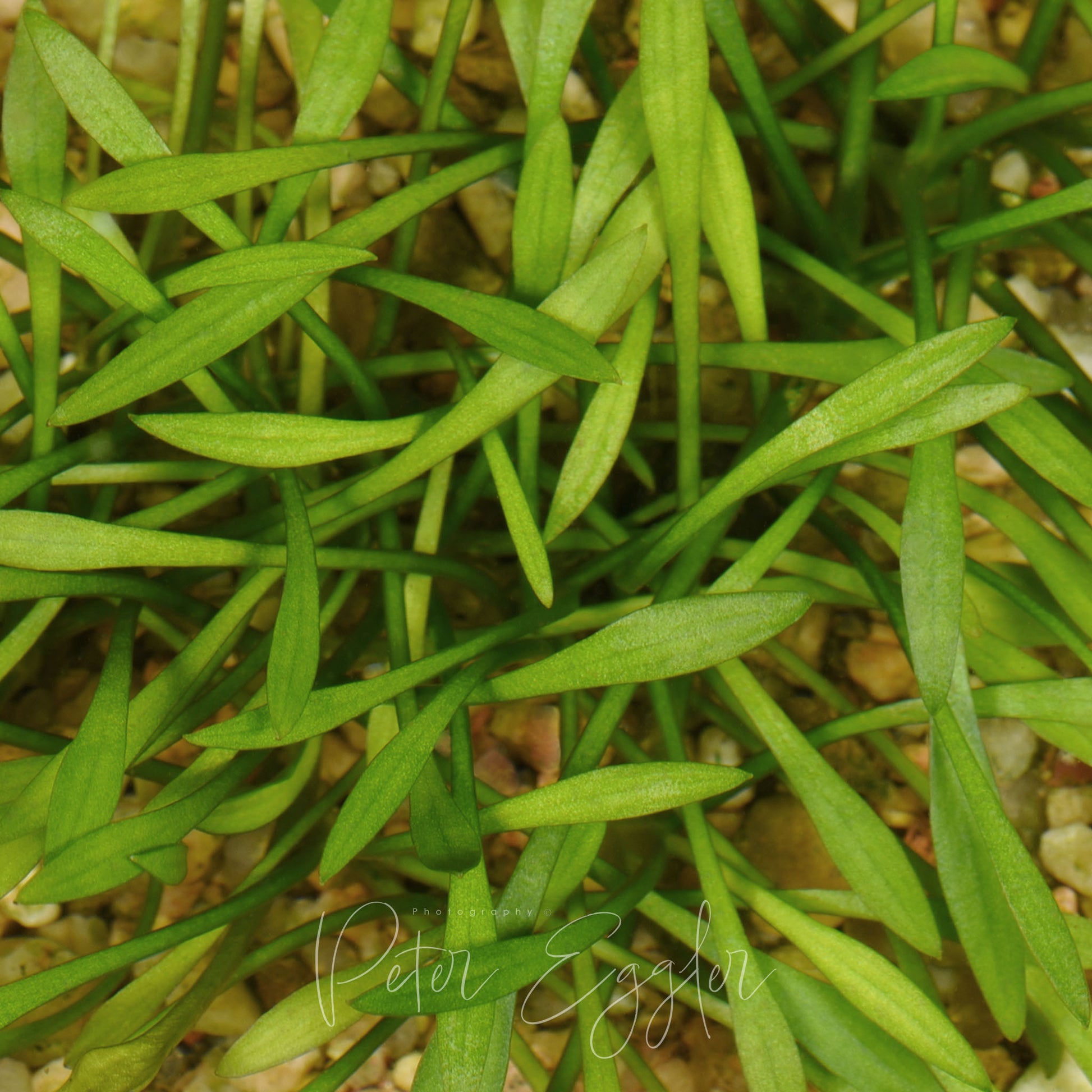Cryptocoryne parva
Cryptocoryne parva
3 in stock
Plant Size/Portion Size:
Plant Size/Portion Size:
Couldn't load pickup availability
Plant Name: Cryptocoryne parva
Tankquility Catalogue #: TQ-01320
Synonyms/Trade Names:
Original Plant Sourced as: Cryptocoryne parva
Plant Family: Araceae
Plant Native to1: Sri Lanka (the crypts pages - http://www.cryptocoryneworld.org/index.php)
Plant Type: Semiaquatic
Image Details2:
Image 1: Cryptocoryne parva grown submerse in a greenhouse pond. High light levels keep the plant very low growing.
General Information and Cultivation3: A miniature-size crypt, very slow growing and somewhat difficult to cultivate submerse. The species requires high light intensity to do its best and to take on a prostrate habit. Due to its slow growth rate, Cryptocoryne parva is an ideal foreground plant, requiring minimal maintenance. Cryptocoryne parva is adaptable to water (soft to hard) and substrate (slightly acid to alkaline) conditions.
Growing this crypt emerse is possible under high humidity/misting and low to moderate light intensity. Transitioning to emerse can be slow; it may take a while to establish.
Identification Notes: Tankquility has flowered this clone and confirmed its identity as belonging to the species Cryptocoryne parva.
Ease of Care: Medium
Plant Size/Portion Size:
Submerse grown plant: Medium-size plant with several leaves.
Further Reading:
Jacobsen, N. (1976). Notes on Cryptocoryne of Sri Lanka (Ceylon). Botaniska Notiser 129 (2): 179-190.
Jacobsen, N. (1987). Cryptocoryne in: A Revised Handbook to the Flora of Ceylon, Vol. VI: 85-99. M. D. Dassanayake & F. R. Fosberg (eds.). Amerind Publishing Co. Pvt. Ltd., New Delhi, 1987.
1 Distribution is taken from Plants of the World Online (https://powo.science.kew.org/) unless stated otherwise.
2 All images used on the Tankquility website have been taken of plants growing in our nursery.
3 The general and cultural information provided is based on our own experience and observation. If we supply information from others, we have acknowledged the source.
SKU:
View full details
-
Plants can alter their appearance due to seasonal influence, or in response to different environmental conditions or stage of maturity. This phenomenon is known as phenotypic plasticity, and it is especially evident in Aquatic/Semiaquatic plants. Whilst we endeavour to portray a plant accurately, the plant you receive may have been growing under different conditions or be at a different stage of maturity to the one in the image(s) provided.
How we package your plants...
-
Aquatic/Semiaquatic plants will be shipped bare-rooted and wrapped in damp paper for protection when required.
-
Terrestrial/Epiphytic plants will be shipped bare-rooted and the roots wrapped in damp sphagnum moss for protection when required.

